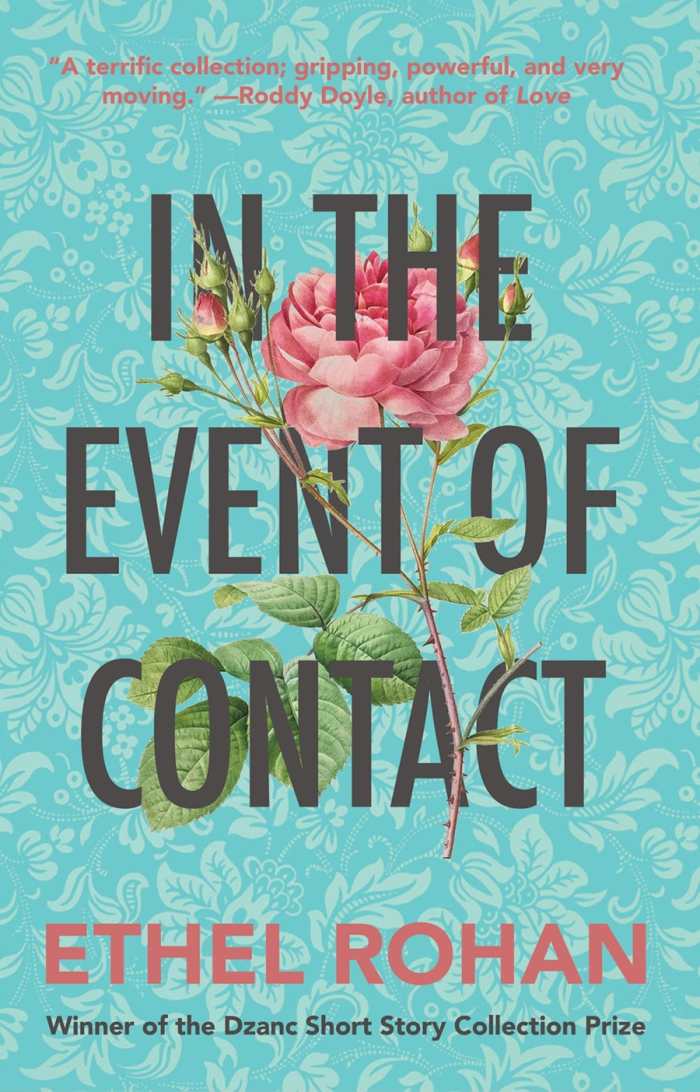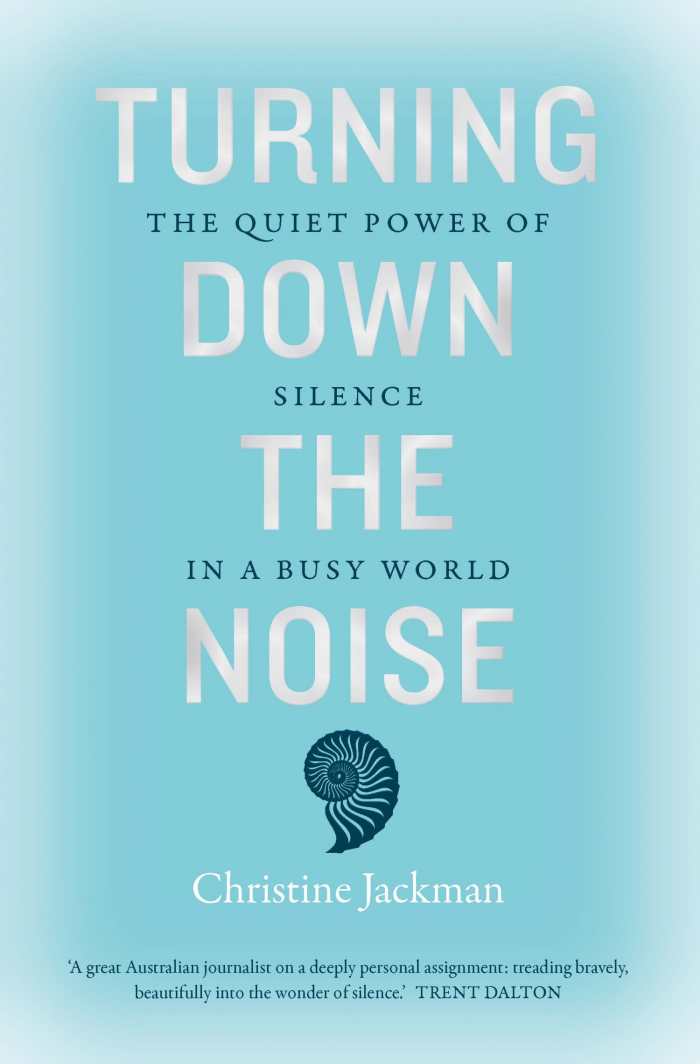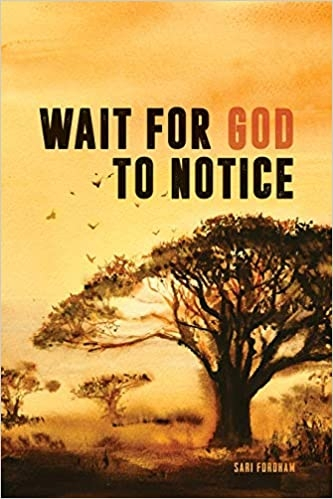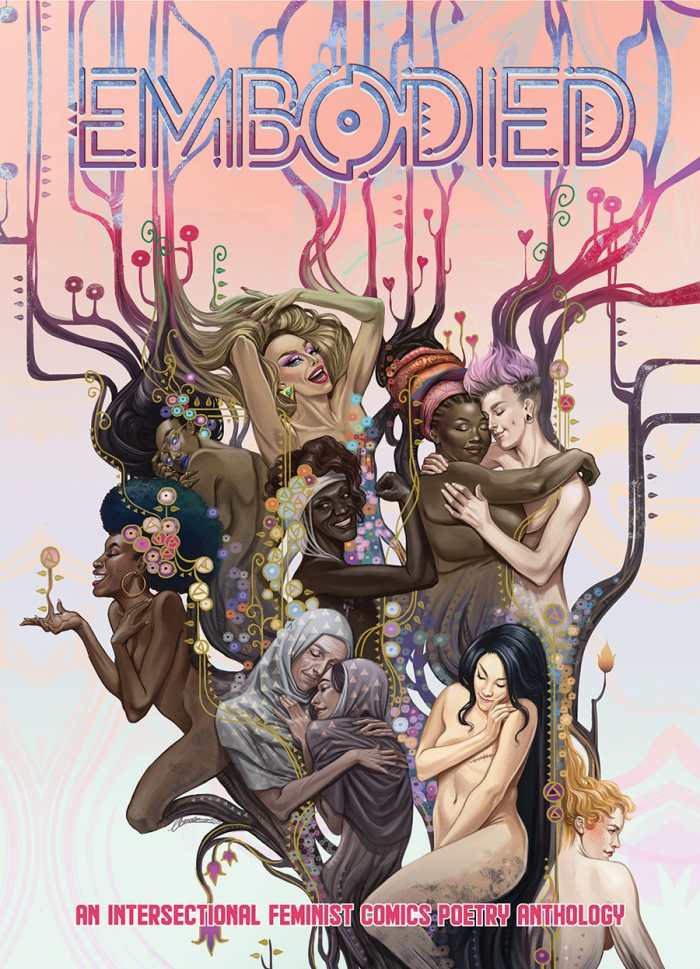Book of the Day Roundup: May 17-21, 2021
In the Event of Contact

Ethel Rohan
Dzanc Books
Softcover $16.95 (200pp)
978-1-950539-26-0
Buy: Local Bookstore (Bookshop), Amazon
Distance, psychological and physical, runs through Ethel Rohan’s short story collection In The Event of Contact. Here, contact, or the lack thereof, signals loss, emptiness, and need. Meanwhile, intimacy is a double-edged sword.
In settings including America to Ireland, Rohan’s characters negotiate treacherous emotional distances in poignant ways. A man in San Francisco who’s cheating on his wife bridles at his Irish mother’s visit. A New York hairdresser discovers how deep her emotional rift is with her parents over the issue of children. In “In the Event of Contact,” the youngest of three identical triplets cannot bear to be touched, causing the sisters to drift apart.
The stories’ women are burdened by their bodies and womanhood. The hairdresser agonizes over whether her marriage could withstand the abortion she had. A mother finally takes her first flying lesson when her uterus hemorrhages. In other stories, young women grapple with men in sexualized encounters, when what they want is intimacy. Older women in “Collisions” and “Any Wonder Left” feel desire, but not sexiness.
By contrast, the men are less encumbered: a boy gets into scraps because he wants to be Sherlock Holmes; a rural teenager lusts after an older, divorced lodger, sees her naked, and has violent fantasies. Even when burdened by physical conditions, as with a traffic warden in a wheelchair and a priest suffering from dementia, they manage to roam—the former through being nursed by a desirable woman, and the latter by wandering out of his house.
Rohan’s plain prose helps to feature the emotional earthquakes these characters undergo while they’re navigating ordinary happenings, and her masterful use of Irish lilts and rhythms helps to reveal intricate emotional distances between those who left and those who stayed behind, even as it nestles the reader deep into her characters’ hearts and minds.
ELAINE CHIEW (April 27, 2021)
Roundabout of Death

Faysal Khartash
Max Weiss, translator
New Vessel Press
Softcover $16.95 (176pp)
978-1-939931-92-4
Buy: Local Bookstore (Bookshop), Amazon
A heartwrenching and shocking work of historical fiction, Faysal Khartash’s Roundabout of Death focuses on the human cost of Syria’s civil war.
Set in the coffee shops, apartments, and street corners of Aleppo and Raqqa, the capital of ISIS, the novel follows Jumaa, an unemployed Arabic teacher who struggles to live peacefully in a dangerous city. The story revolves around death, which comes in all forms: the deaths of parents and children, the death of culture, and the death of Syrian city landscapes. These deaths are presented as artifacts of Aleppo, with its public hanging space, desecrated statues, and bombed out apartments and city squares.
The book’s short chapters read like self-contained stories about Jumaa, his family, intellectual friends who pass time in cafés, and notable people in Aleppo and Raqqa, like the shabbiha militiamen who sport Russian firearms as they loom in town squares and the corners of shops, and Miss Beauties, a woman who wanders the city, and who is raped and used by intellectuals and shabbiha alike.
Khartash’s idiomatic expressions and unusual sentence constructions preserve the culture and nuances of the source language, making the text and, by proxy, the realities that so many people face, accessible. Precise language elucidates the book’s themes: when Jumaa experiences Raqqa under ISIS rule, he hears a car “blasting religious anthems about the virtues of jihad.” This is juxtaposed with the daily blasting of bombs, which interferes with the citizens of Aleppo’s daily lives. Other blasts are seen during Jumaa’s stay in the city, too, highlighting its dangers—not because of bombings, but because of the religious extremism of ISIS.
Roundabout of Death is a powerful novel that takes a humane view of Syria’s devastation.
GEORGE HAJJAR (April 27, 2021)
Turning Down the Noise
The Quiet Power of Silence in a Busy World

Christine Jackman
Murdoch Books
Softcover $20.99 (320pp)
978-1-911632-93-1
Buy: Local Bookstore (Bookshop), Amazon
Heartfelt and with touches of humor, Christine Jackman’s Turning Down the Noise showcases the inviting power of silence.
The book tracks Jackson’s growth into appreciation of the practice of silence. Her development happened in fits and starts—a lifelong quest that intensified in recent years as she companioned her aging father through illness. Her honest narrative includes insights to motivate others toward a similar learning process.
Silence itself is tangible in the story, almost like a person or place that Jackman is trying to find. Her narrative shows that seeking silence is not a means to enlightenment or wisdom, but is a worthy end in itself. While her story centers on adulthood, the book shares the tantalizing idea that “the memory of silence lingers” from childhood and before “in our unconsciousness.” In fact, Jackman’s pursuit began when she stayed behind, outside in the quiet, while her kindergarten class left its recess.
Jackman’s storytelling is strong. Her descriptions are paced out, and her voice is compelling; she has a good sense of others. Her calm tone permeates the book, so that even the process of reading it ushers in mental quiet.
While Jackman’s narrative is central to the book, it also contains practical takeaways for calming inner and outer noise, including seeking out natural surroundings, paying attention to breathing, and engaging the wisdom of monks, gurus, and other practitioners of silence across generations. It closes with a how-to guide to help others embrace the countercultural practice of pursuing silence, which begins with small moments—three slow, deep breaths; smiling while waiting or facing frustration—before moving on the larger silences of nature walks, tech-free bedtimes, and silent retreats.
Turning Down the Noise brings the gift of silence into everyday life.
MELISSA WUSKE (April 27, 2021)
Wait for God to Notice

Sari Fordham
Etruscan Press
Softcover $19.00 (296pp)
978-1-73367-415-7
Buy: Local Bookstore (Bookshop), Amazon
Sari Fordham grew up in the Seventh Day Adventist Church as the child of missionaries; her poetic memoir Wait for God to Notice is about her childhood experiences in Uganda, during Idi Amin’s 1970s reign of terror.
The second child of an American father and a Finnish mother, Fordham moved with her family to a country that was known to be dangerous, though she was too young to know that at the time. Her childhood was at once idyllic and fraught with danger. She writes about her mother, who she both knew and did not know; about how faith was the undercurrent of her family’s life; and about adapting to the unfamiliar and unforgiving environment.
With humor and candor, Fordham discusses the political situation in Uganda and the nuances of the Seventh Day Adventist Church. Scenes cover her mother’s neverending battle with tomato-stealing monkeys, the constant lookout for snakes, a viper in the laundry basket, and swarms of driver ants. The family also dealt with their inability to find basic items like soap, an overabundance of finger bananas, and a frightening visit from a soldier. Still, though they were out of their element, they came to view Uganda as home.
The memoir also has a cathartic element, as Fordham seeks to understand her mother and all of her complexities. Letters from her parents to her grandparents are incorporated; from these pieces, Fordham constructs new understandings of her parents, and of the country that became lodged in her psyche and in her heart.
Its language melodic, Wait for God to Notice is a compelling memoir. This ode to a childhood spent in a foreign country doubles as a exploration of, and reconciliation within, an intricate mother-daughter relationship.
HILARY DANINHIRSCH (April 27, 2021)
Embodied
An Intersectional Comics Poetry Anthology

Wendy Chin-Tanner, editor
Tyler Chin-Tanner, editor
A Wave Blue World
Softcover $16.99 (200pp)
978-1-949518-13-9
Buy: Local Bookstore (Bookshop), Amazon
Verse and visuals meet, with spectacular results, in the graphic anthology Embodied.
Poetry is a visual medium, not just an oral one: the placements of words and blank spaces are often intended to appeal to the eye, and they affect the interpretation and enjoyment of a poem. This book makes full use of the opportunities for color and page design that are inherent to comic books—here, used to maintain or enhance the impact of poems.
The poems and their graphic interpretations come from a lineup of award-winning women, trans, and nonbinary creators. After each artist’s adaptation, the original text-only version of the poem is included, allowing for interesting comparisons. Some adaptations preserve the original appearance of the text, while others take a different tack, splitting or combining lines for a particular effect.
The art is attractive and imaginative. In “Bassam,” a metaphor is depicted as something more than just a figurative truth: “Each morning my heart is / a vulture beating its wings for scraps,” it says. The words are accompanied by images of a scavenger alighting on a shoulder. Images from the poems are given form and shape, sometimes with daring, unexpected approaches, and always in ways that are complementary. The variation among the art and writing styles keeps every segment fresh and exciting.
A study guide forwards two stimulating questions about each poem, regarding their subjects, techniques, and interpretations—enough discussion material to fill a university-level course. Also included are rough sketches from the various adaptations—a fascinating glimpse into artistic processes.
This book bridges the gap between comics and poetry, combining the best of both worlds. With a portion of the proceeds benefiting the International Women’s Health Coalition, Embodied is a wonderful book that’s well worth engaging.
PETER DABBENE (April 27, 2021)
Barbara Hodge

